As we have seen in our previous article, the Tunisian carpet craft suffers from a growing lack of craftswomen. How can we revitalise this thousand-year-old craft? A few lines of thought and an overview of the initiatives put in place.
National initiatives to promote crafts
Several initiatives have nevertheless been launched at national level with the National Office of Tunisian Handicrafts (ONAT) which works to safeguard and develop the handicraft sector in Tunisia by promoting it and developing regional structures which assist craftsmen on a technical and administrative level. This is the case, for example, of the Carpet and Weaving Innovation Centre (CITT) which aims to encourage and develop the sector's creations.
Structures enabling craftswomen to acquire a certain degree of autonomy
Several NGOs also aim to give craftswomen a certain degree of autonomy. For example, the NGO Aatik encourages carpet weavers in the town of El Aroussa (Siliana) to create their own cooperative structure in order to avoid intermediaries. The NGO thus trains these women in entrepreneurship, marketing and marketing strategies for their products. In the same sense, the NGO CAWTAR works with the weavers of the city of Kef by providing them with financial aid for the purchase of equipment or raw materials and by giving them training sessions on leadership, financing, marketing and design.
The United Nations Development Programme (UNDP), for its part, has drawn up a plan of action for the improvement of the carpet weaving sector in Gafsa, which has consisted in the training of craftswomen, the creation of structures, tourist circuits and the encouragement of creation. The plan has been followed by ONAT and CITT and has contributed to the socio-economic dynamism of the region.
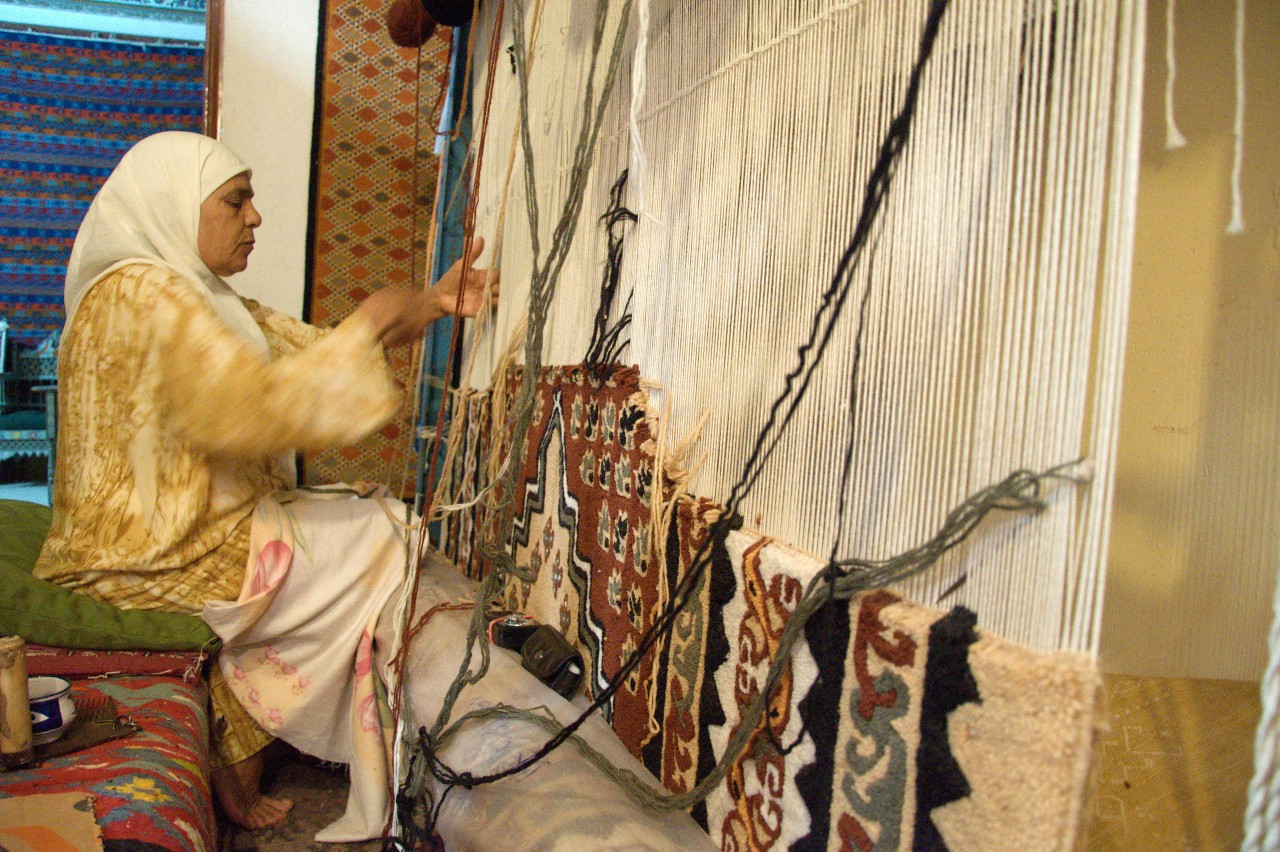
Weaver from Kairouan (Tunisia) weaving a Kairouan rug - CC by Alexandre Moreau
A necessary social revaluation of the profession
Beyond these initiatives, a social revaluation of the profession is necessary. It is in fact one of the most creative professions, stemming from an ancestral tradition requiring proven know-how, great artistic rigour and a certain sense of imagination. However, in a Tunisia in full mutation, the profession is underestimated, even depreciated, perceived as obsolete.
Some initiatives are emerging in Tunisia such as the collective Be Tounsi, born from a simple Facebook group launched in April 2016 entitled "This summer I dress Tunisian"; the objective: to consume Tunisian. Very quickly the group has known a certain craze and considerable success, giving the population the desire to revive its craft. Initiatives of this type allow people to reconnect with their heritage and give meaning to the craft.
Chwaya: new markets
Through our brand Chwaya, we try to keep this craft alive by avoiding the middlemen and promoting Tunisian carpets in the world to open new markets previously inaccessible to weavers. As it is done for other sectors in Tunisia, we believe that the regulation by the State of carpet tariffs could be an effective solution which would allow to remedy the fact that intermediaries often take advantage of the precarious situation of the craftswomen. This is moreover harmful to the intermediaries themselves who have more and more difficulty in acquiring new carpets, for lack of weavers available on the market - a vicious circle.
Finally, we hope that these initiatives will be conclusive in the long term, that the weaver's loom will be appreciated at its true value so that the weavers can earn a decent living and that this thousand-year-old craft can continue for future generations.
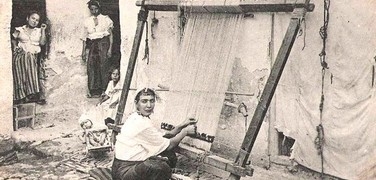 The loom: humanity's first machineRead more
The loom: humanity's first machineRead more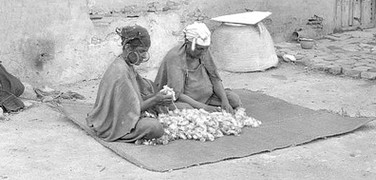 Preparing the wool13/11/2021Posted in: HandicraftRead more
Preparing the wool13/11/2021Posted in: HandicraftRead more Floral waters / hydrolats in Tunisia: distillation and virtues29/01/2021Posted in: HandicraftRead more
Floral waters / hydrolats in Tunisia: distillation and virtues29/01/2021Posted in: HandicraftRead more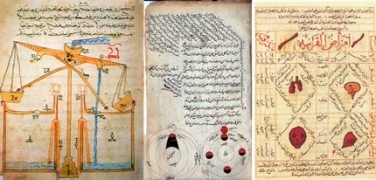 Arabic words in the French language13/01/2021Posted in: CultureRead more
Arabic words in the French language13/01/2021Posted in: CultureRead more Reviving the Tunisian carpet craftswomanship14/12/2020Posted in: HandicraftRead more
Reviving the Tunisian carpet craftswomanship14/12/2020Posted in: HandicraftRead more
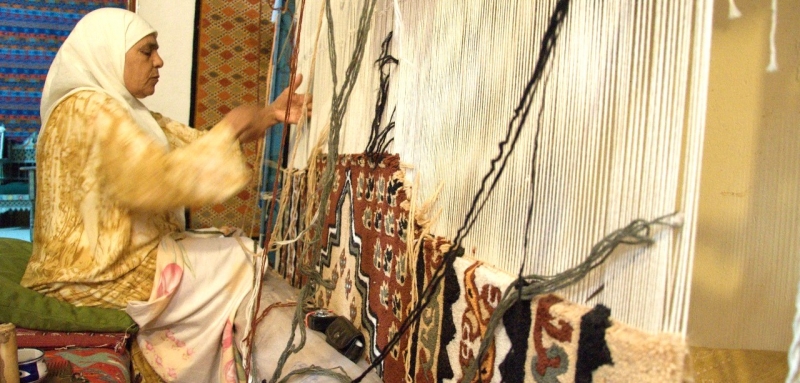


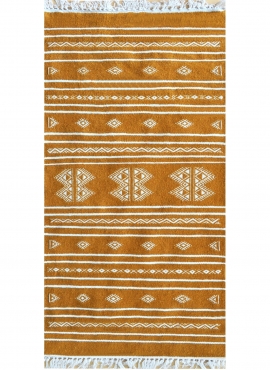




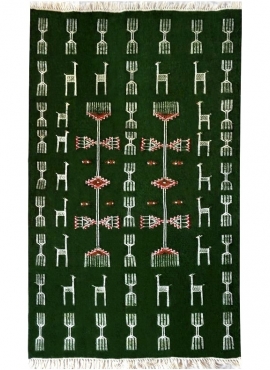

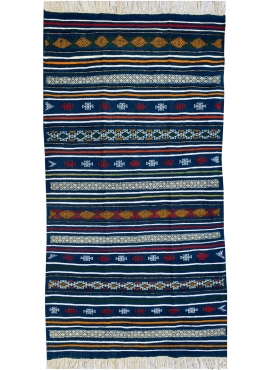
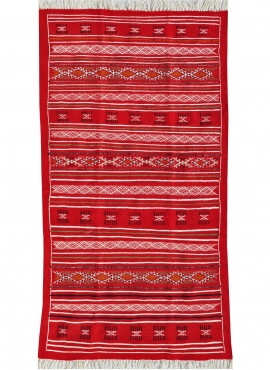
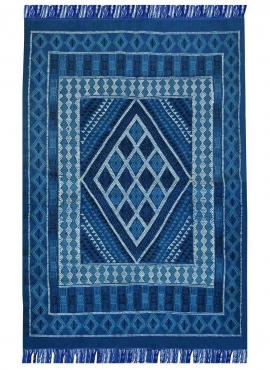







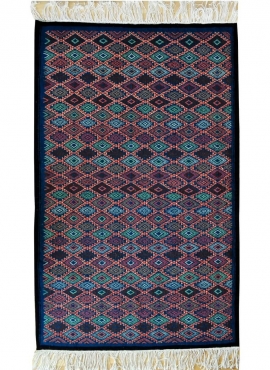
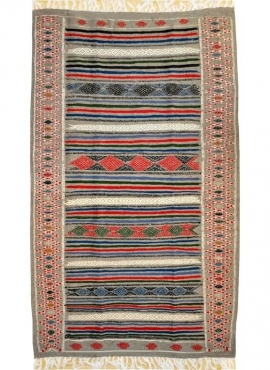
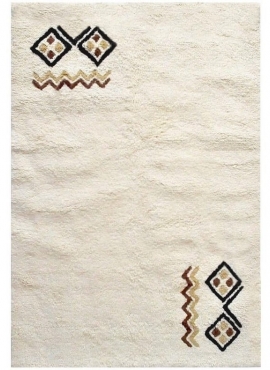
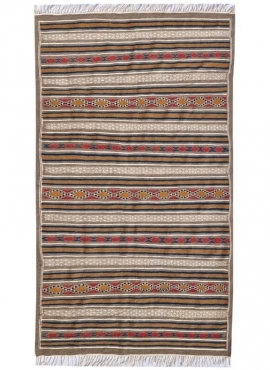


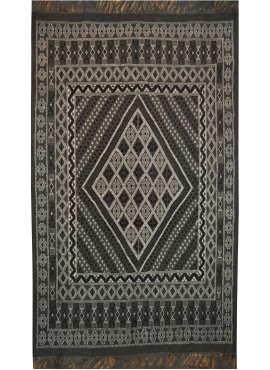



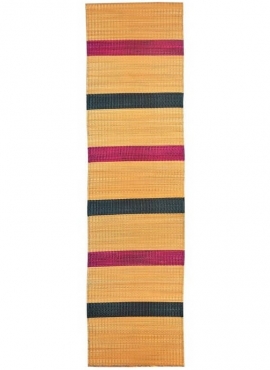



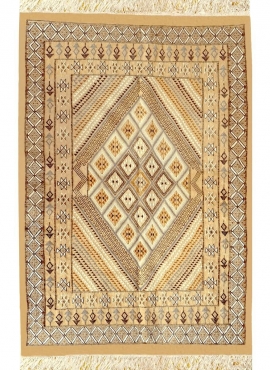

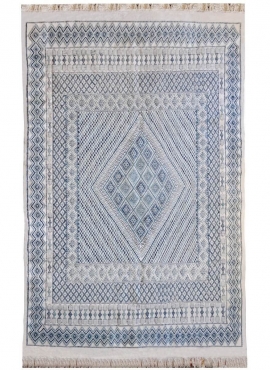






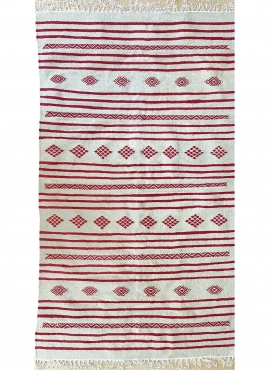


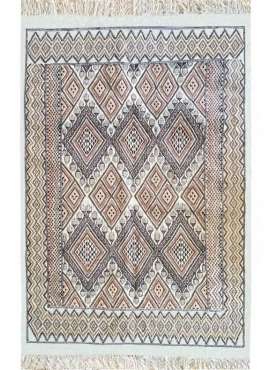



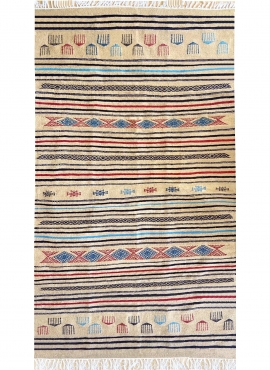

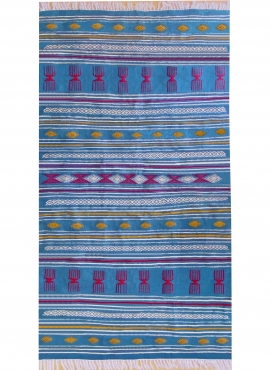
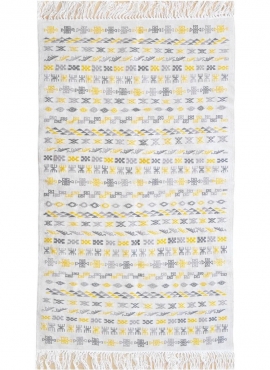
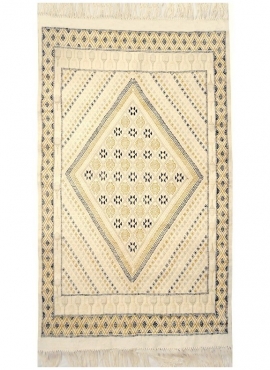
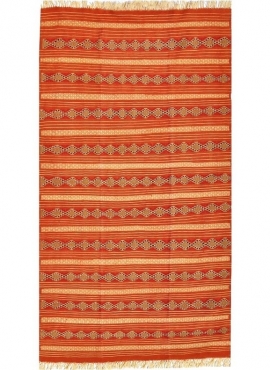
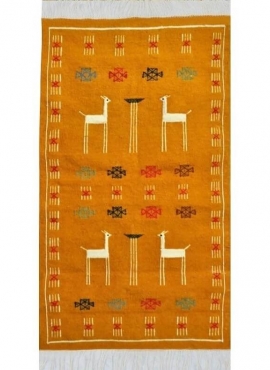
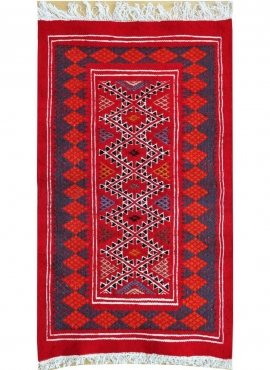

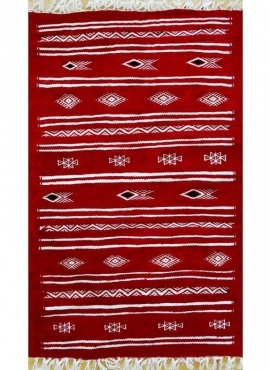

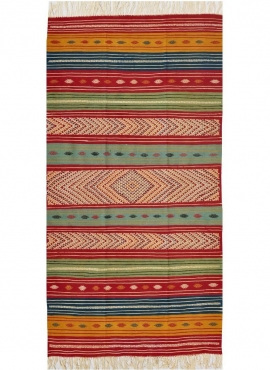
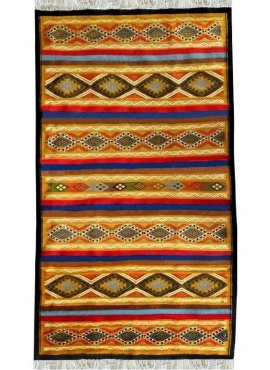
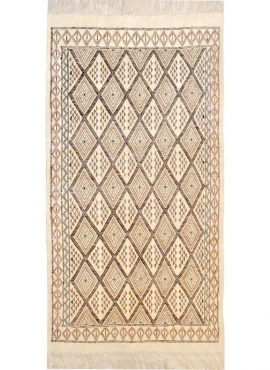
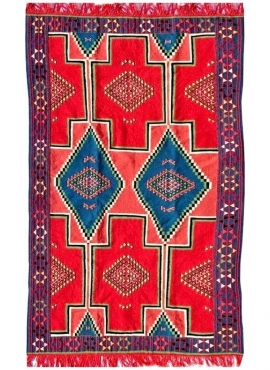
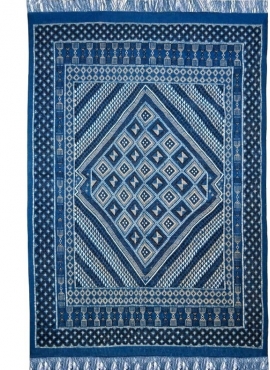
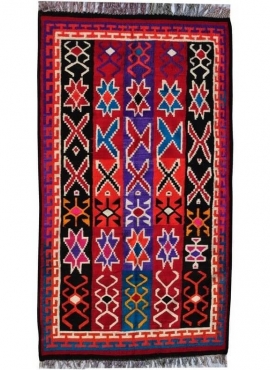

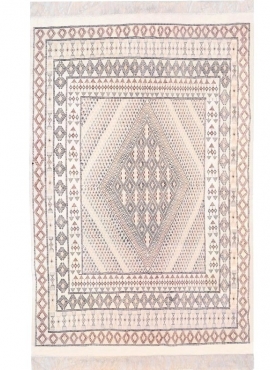

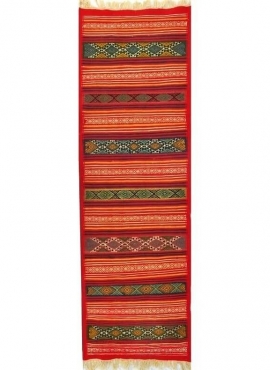
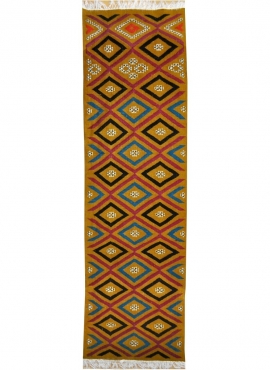



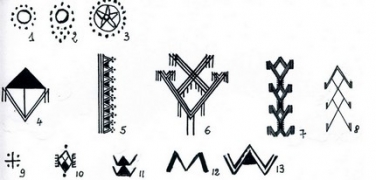
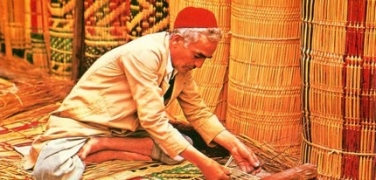
Leave a comment